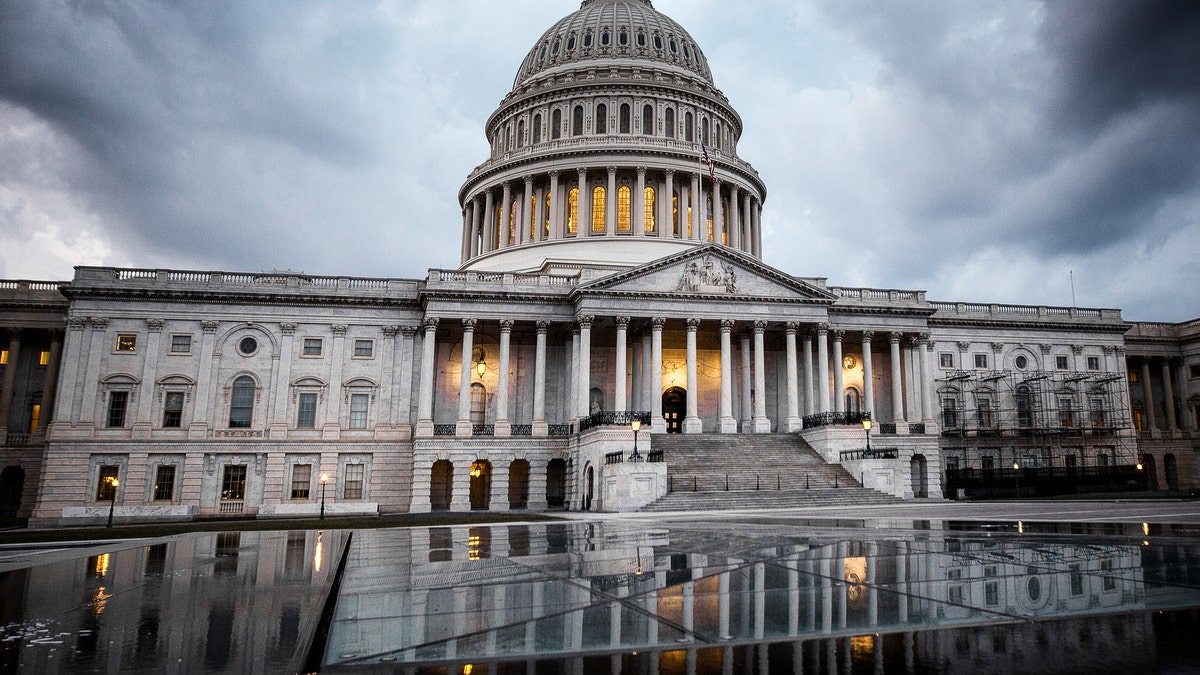
The United States Capitol Building (iStock)
In 2015, a diverse group of lawmakers set out to rethink our approach to federal prison sentences. Our goal: improve public safety and the rule of law by ensuring that penalties match their crime. Many months of thoughtful deliberation yielded a product that earned broad bipartisan support in Congress and from organizations around the country and across the political spectrum. And though the political winds in Washington have shifted, that broad support for comprehensive sentencing reform remains strong.
This week, we are reintroducing the “Sentencing Reform and Corrections Act” as we continue to build on the most sweeping criminal justice reform effort in a generation.
Crafted by Republican and Democratic leaders, this legislation aims to safely and sensibly reduce excessive sentences. It recalibrates prison sentences for certain drug offenders and gives judges greater sentencing flexibility while keeping stiff penalties in place for violent criminals. The bill preserves important law enforcement tools to take down large criminal organizations while expanding outlets to shield low-level nonviolent offenders from lengthy mandatory minimum prison sentences. It eliminates mandatory life sentences for three-strike drug offenders and gives judges authority to retroactively apply the Fair Sentencing Act, which reduced the sentencing disparity between offenses involving crack and powder cocaine. The bill also includes “back end” reforms to curb recidivism by helping inmates successfully re-enter society.
It became clear that if we wanted to truly make progress on this issue, we would have to come together, check our differences at the door, and focus on areas where we could reach agreement.
We believe this is the right mix of reforms to give nonviolent offenders who’ve done significant time for their crime a second chance to rejoin their families and contribute to our communities while also reducing taxpayer costs and empowering law enforcement to keep dangerous criminals off our streets. Our bipartisan work represents hard-fought consensus to a long-established problem.
In recent years a unique and growing chorus of voices from across the political spectrum prompted a number of proposals in Congress to reform sentencing laws. However, until now, none garnered enough support to move forward. It became clear that if we wanted to truly make progress on this issue, we would have to come together, check our differences at the door, and focus on areas where we could reach agreement. So a bipartisan group of senators and their staffs held countless discussions to forge a framework for reform. After months of thoughtful deliberation, we introduced a bill that swiftly passed the Judiciary Committee and was cosponsored by 37 senators—a rare broadly bipartisan alliance.
The House of Representatives followed suit, moving its bipartisan sentencing reform package through the committee process less than a month later.
We are encouraged by engagement from the White House on this comprehensive criminal justice reform effort. Last Congress, our bill was supported by hundreds of organizations from a variety of industries and political perspectives, including the NAACP and the Charles Koch Institute. It was also endorsed by a broad range of faith-based organizations and law enforcement leaders. We continue to welcome input from stakeholders and our colleagues in government and the law enforcement community as we make additional improvements.
This bill represents the way Congress is supposed to work, and is well-positioned to be one of the most significant bipartisan achievements of the 115th Congress. It also represents an important step in our nation’s ongoing quest for justice.
Our founders declared that Americans have the inalienable rights to life, liberty and the pursuit of happiness. Our criminal justice system needs to reflect these values. That means seeking justice for both the victim and the accused. Our colleagues in Congress supporting these reforms may not always see eye to eye on every proposal, but we are committed to upholding America’s promise of justice for all.








































